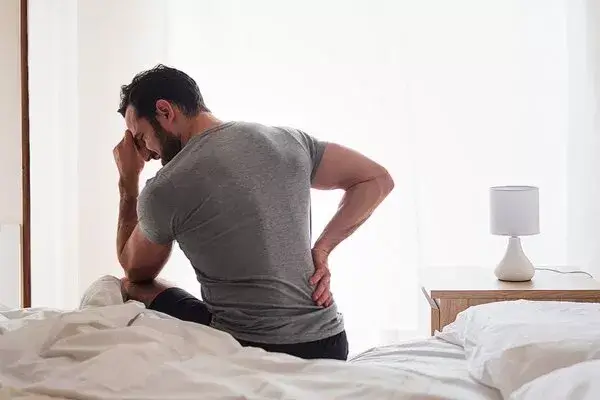Sleep we always seem to need more of it! Unlike animals who dedicate almost 1/3 of their life to it, we humans use every excuse in the book from triple shot lattes to watching just one more episode on Netflix, to avoid getting more of it.
Sleep deprivation can lead to a lack of coordination, poor mental function and weight gain, while long-term sleep deprivation increases the risk of heart disease, diabetes and even dementia.
From a physio perspective when you are asleep your body can focus on repairing tissue damage. Less sleep means less time to heal, slowing rehabilitation and even turning minor injuries into chronic ones.
There’s also increasing evidence that sleep deprivation not only slows recovery but may even be a cause of certain injuries, particularly back pain.
A recent study followed people for two years and kept a record of various aspects of their well-being and lifestyle, including their family history, blood pressure, level of activity, exercise, and hours of sleep.
Of all these factors, the one that forecasts the development of lower back pain was people getting fewer than eight hours of sleep a night. No matter how strong they were, how flexible they were, or what level of stress they had – it all came down to sleep.
At Hobsonville Physiotherapy we make a point of asking how your injury affects your sleep and it does seem that there is some correlation between pain and poor sleep.
There is, of course, always a chicken and egg situation when considering the role of sleep and pain.
Is the patient’s pain exacerbated by lack of sleep or is their lack of sleep caused by the pain? Then we also must consider other extrinsic factors such as stress, a young baby, and noisy neighbours!
Whatever the pattern of cause and effect, improving one’s quantity and quality of sleep is essential to recover from an injury. There are established ways to improve the quality of sleep.
Limit caffeine from the afternoon onward
If you have caffeine in the afternoon onwards, you interfere with the natural build-up of adenosine (caffeine blocks this chemical which induces the feeling of drowsiness). This effect continues for around 4-6 hours after consumption. Therefore keeping you wired well past your usual bedtime.
Dim your lights in the evening
One of the ways that your body recognises that it’s time to sleep is from light levels. If you surround yourself with bright lights, your body may respond as if it is daytime, once again inhibiting the production of adenosine.
Turn off that TV, phone, or tablet an hour before sleep
Screens emit light at the same colour temperature as sunlight. This helps produce a natural-looking image, but can also trick your brain into thinking it is daytime.
The content on these screens is usually highly stimulating as well, preventing you from “switching off” when it’s time for bed.
Don’t use alcohol to help yourself sleep
Alcohol can make it easier to fall asleep but the actual quality of the sleep is reduced, limiting the benefits sleep provides and leaving you more tired the next day.
Sleep not enough? Come and see us
Improving your sleep is just one of the many ways that you can treat and prevent back pain.
By not only allowing our expert physios to assess and treat your back pain with a hands-on approach, but we can also utilise a holistic approach to examine all aspects of your health and well-being which may also be a big contributing factor to your lack of sleep!
